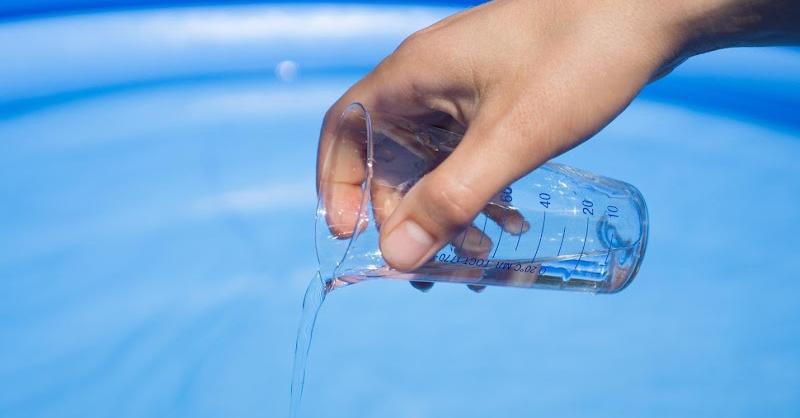Pool chemicals are one of the most important pool supplies. They are so important that they determine the safety of a swimming pool, its swimmers, or otherwise. As a result, pool owners and users need to have a good understanding of these chemicals.
To further buttress how important this is, government bodies like the CDC (Centers for Disease Control and Prevention) have issued repeated statements on the need to properly get and use these chemicals. For more information on this, you can check: https://www.cdc.gov/.
In the true spirit of ensuring that the essence of these chemicals is well understood, this article will address this subject. Read on to be well-informed about them.
Which Chemicals Are Used in Swimming Pools?
Chemicals used in swimming pools include:
- Chlorine
- pH Adjusters
- Stabilizer (Cyanuric Acid)
- Alkalinity Adjusters
- Algaecides
- Calcium Adjusters
- Sodium Chloride (Salt)
- Shock Treatment
- Enzymes
They all serve specific purposes depending on the kind. Some of the roles played are more vital than others. For example, algae prevention is more important than having clear water. By and large, they are used to ensure that the water is:
- Properly sanitized
- Clear
- Has the right pH level
- Is safe and comfortable for swimmers
- Offer some sort of UV protection
- Complies with regulation
- Prevents the spread of waterborne diseases
- Preserve equipment and components
All these go to show the importance of using the right chemicals and using them as they should be used. But as mentioned early on, this necessitates a sufficient understanding of what each of these chemicals do.
Essence of Pool Chemical Supplies
Each of the chemicals mentioned early on plays specific roles. The roles that 4 very important pool chemicals play are discussed below:
Chlorine
There are chemicals that some pool owners or administrators never get to use. This is because they are not as important as some options. Speaking of the most important ones, chlorine is conveniently high on the list. As a result, it should be well understood.
Its necessity stems from the fact that it is used for sanitization. This is particularly important in publicly used swimming pools, which are more susceptible to bacteria, algae, and even viruses.
This supply is made available in different forms including tablets, granules, and liquid. The right amount has to be used to ensure the safety and comfort of swimmers.
Even distribution of this chemical can also be a challenge. This is why supplies such as automatic chlorinators or chlorine dispensers may be required. It is also a good idea to have a chlorine test kit.
All of these accessories can be purchased online. In fact, you can conveniently find a variety of online pool accessories for less on reputable websites. All you need to do is just carry out a thorough search.
pH Adjusters
pH adjuster is a broader term for this kind of pool supply. This is because there are options used to increase, as well as decrease the water’s acidity and alkalinity level. Maintaining the right pH level is essential for three reasons:
- Ensuring swimmer’s comfort
- Preventing scale formation
- Preventing corrosion
Depending on the pool’s peculiarities, the ideal pH range should be in the 7.2 to 7.6 range. Anything below or above this range is certainly not ideal.
Furthermore, there are various kinds of pH adjusters. In the case of increasing the water’s pH level, there are two major options – soda ash or sodium carbonate. There are also two major options when it comes to decreasing the water’s pH level – muriatic acid or sodium bisulfate.
Alkalinity Adjusters
Some people question the need for an alkalinity adjuster when there is already a pH adjuster. To set the record straight, you need both as they cannot be substituted for each other. This is even though they both impact the water’s pH level.
Alkalinity adjusters add some needed buffer effects by properly stabilizing the water’s pH level. Failure to do this would result in pH fluctuations. The ideal alkalinity level should be between 80 – 120 ppm (parts per million).
Cyanuric Acid
We did mention how chlorine is conveniently one of the most needed chemicals in this setting. Well, this chemical – Cyanuric Acid (also referred to as stabilizer) ensures that chlorine works effectively. This is by ensuring that it is not badly affected by UV rays. The ability of cyanuric acid to do this makes chlorine more effective.
However, the right amount has to be applied. That would be levels between 30 – 50 ppm. Using more than you should would defeat the purpose of using it in the first place. This is because it would render chlorine ineffective. You can click here to find out more about cyanuric acid.
In Conclusion
Pool chemicals are one of the most important pool supplies. The preservation of pool equipment & components, safety, as well as convenience of swimmers, lie in using the right ones. It is equally about using them in the right measure. This is why pool owners and even users need to understand the use of these supplies.






